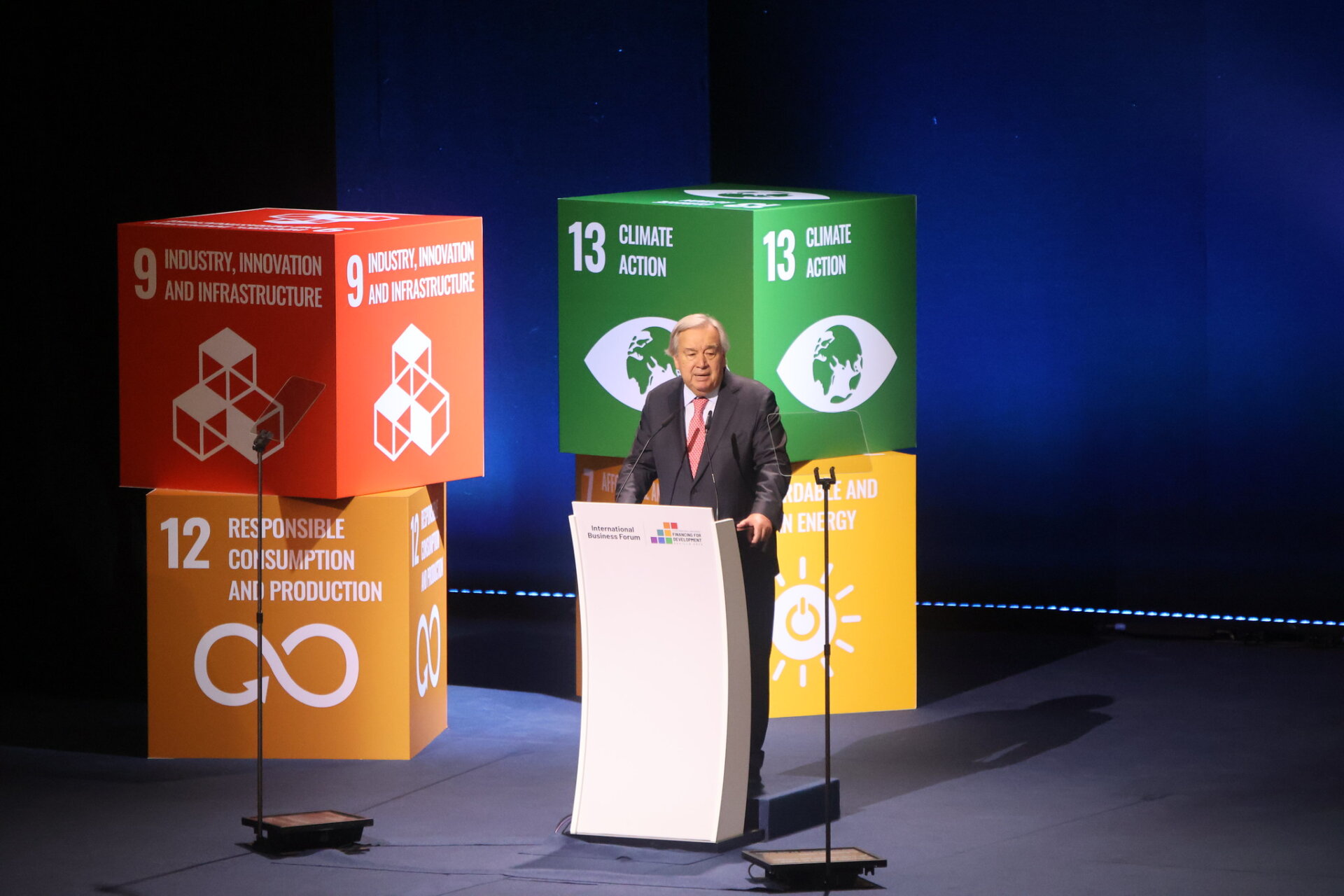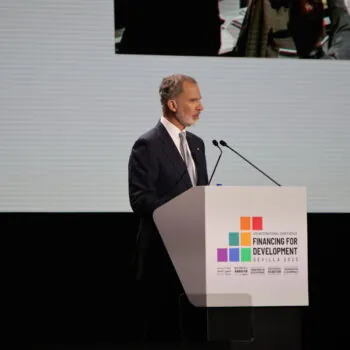The UN’s Fourth International Conference on Financing for Development (FfD4) in Seville just wrapped up after four days of discussions buzzing with big ideas and ambition. Now comes the hard part: turning words into action.
Last week’s talks showed that despite the growing geopolitical tensions, multilateralism is still alive – albeit hanging by a thread. Notably, President Emmanuel Macron and Prime Minister Pedro Sánchez were the only leaders from developed economies present to hear widespread anger over aid cuts.
Despite its shortcomings, the Compromiso de Sevilla, or Seville Commitment – agreed ahead of the conference by participating countries (with the exception of the US) – has the potential to deliver concrete change, depending on what governments do next. Practical steps have already been made through the Sevilla Platform for Action, which brings together 130 voluntary initiatives by countries, development actors and financial institutions.
From vision to action
With cuts to aid budgets dominating development headlines in recent months, the Summit rightly acknowledged that public finance will continue to play a crucial role in sustainable development. While political discussions identified the human, economic and environmental costs of budget cuts, many of the technical discussions focused on how governments can work together to do more with less.
This includes making sure that the financial architecture is better set up to deliver. Country platforms in emerging and developing economies are a key piece of the puzzle. When designed right, they can more readily mobilise and channel the full range of international support and capital. These platforms also work best when they’re built on solid macro-fiscal policies and strong public financial management. But it is critical that discussions on platforms shift from rhetoric to delivery and ensure that real investment – including support – is moving to the most mature platform propositions this year.
There should be no doubt about the need to bolster international support budgets. The FfD4 outcome saw a welcome re-commitment to the aim to triple the size of multilateral development banks (MDBs), but additional concessional finance is also needed.
One option is the use of new levies to provide predictable streams of finance. FfD4 saw a commitment by eight countries to introduce or increase taxes on premium-class air travel and private jets, a proposal by the Global Solidarity Levies Taskforce that will report on a wider range of levies ahead of COP30.
However, public money alone won’t cut it. Unlocking the vast pools of private capital required to meet climate goals is equally essential. That means getting serious about risk-sharing instruments and financial regulatory reforms that make emerging markets a real option for long-term investors. This is not about deregulation but smarter calibration. It will be good for business, good for people, and a relief for public finances.
Side events and technical workshops at FfD4 saw a surge in interest in greater use of guarantees to absorb risk and thus increase the headroom of national development banks. Delivering on this potential will mean moving quickly from a broad discussion around guarantees as an instrument to alighting on specific proposals.
Strengthening debt sustainability frameworks will be critical for developing countries. Recognising that many countries are weighed down by high interest costs and constant refinancing needs – which ends up crowding out development spending and blocks efforts to build resilience – was an important part of the discussions.
This included the launch of the Debt Pause Clause Alliance, bringing together countries and major multilateral development banks with the aim of temporarily pausing debt repayments, and giving vulnerable countries the fiscal space to respond without risking their financial stability or cutting essential services. The next priority is to improve debt restructuring processes, so that countries facing unsustainable debt can get timely and meaningful relief.
A test of ownership and commitment
The Compromiso de Sevilla is an agreement made in challenging times that will only succeed if leaders are held to account for their commitments. If not, we will be back at the drawing board in 10 years, with even more pressing challenges.
The second half of 2025 (G20 South African Presidency, Annual Meetings of the International Monetary Fund and the World Bank, COP30) and 2026 (G7 French Presidency, Spring Meetings) are full of opportunities for creating political momentum and international commitments derived from the Compromiso de Sevilla.


